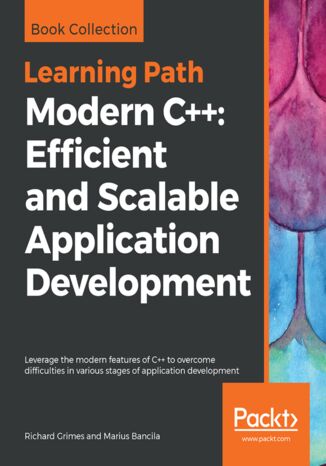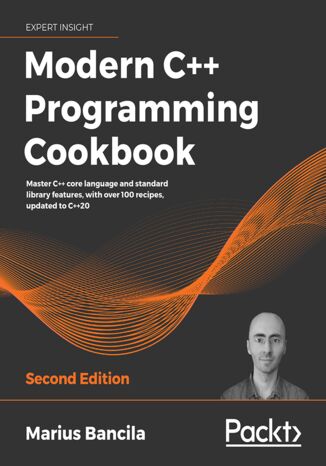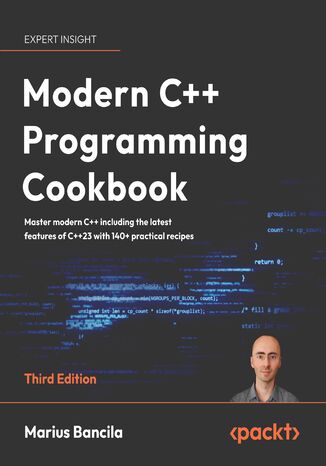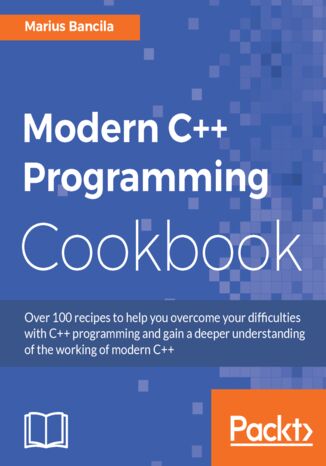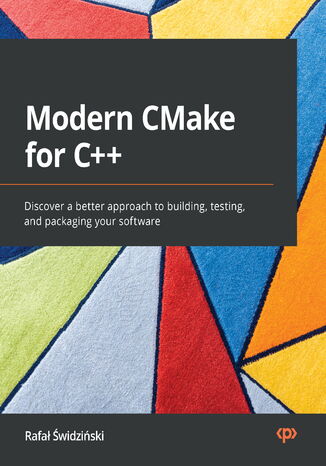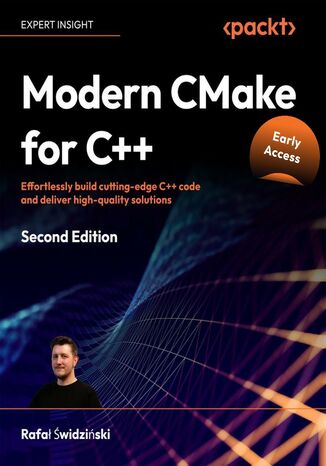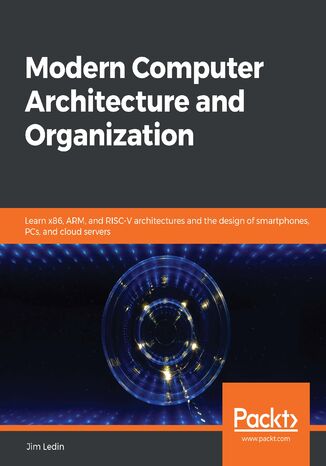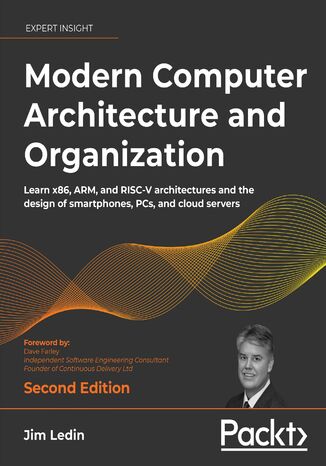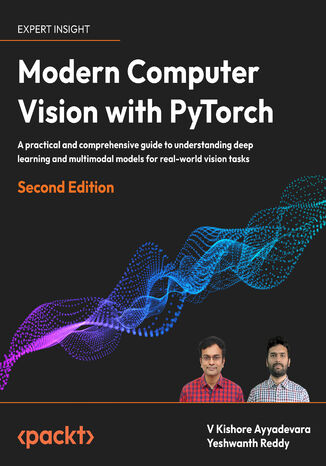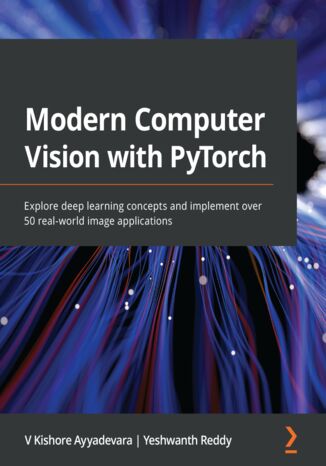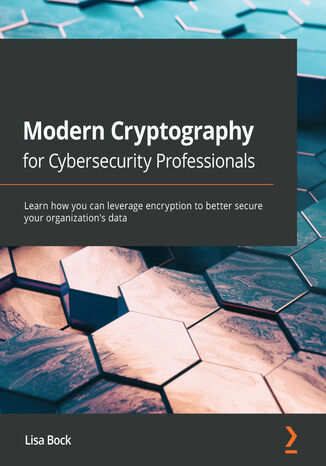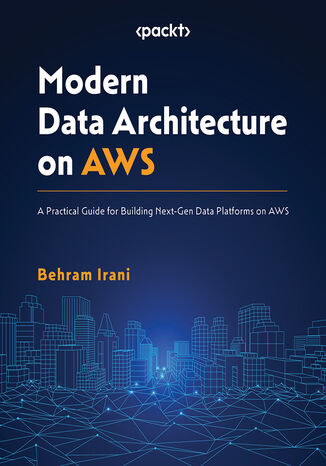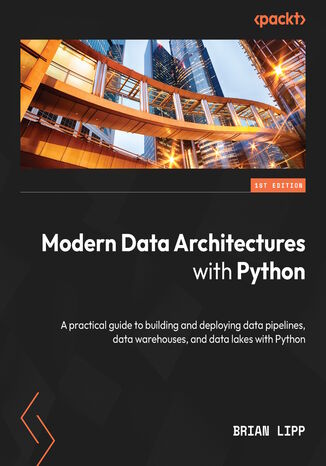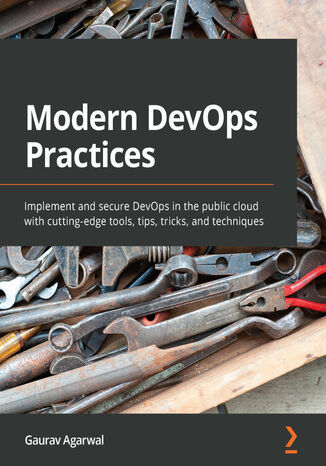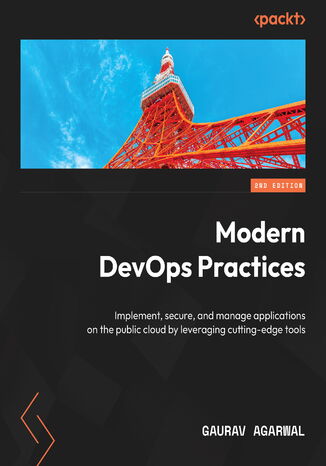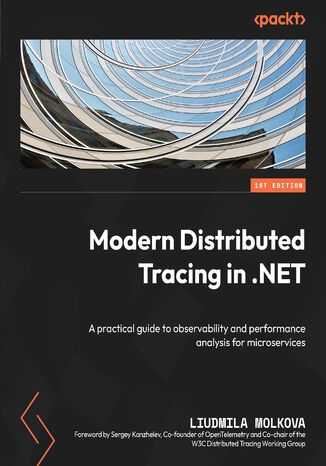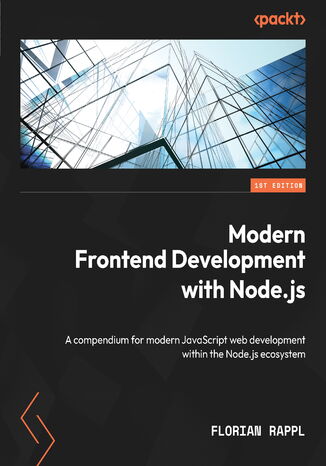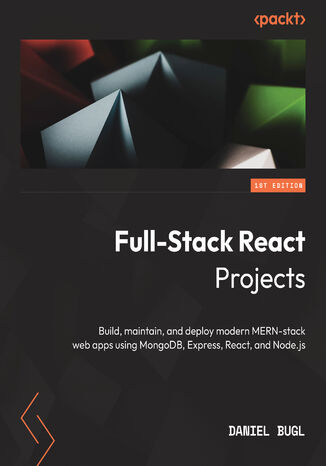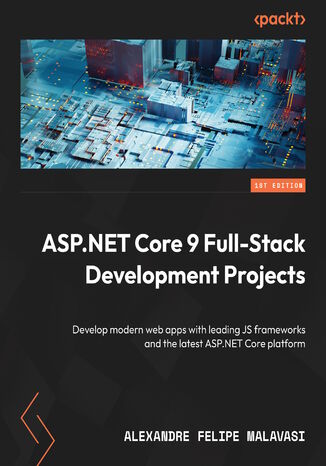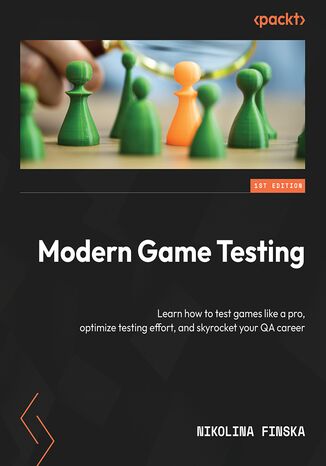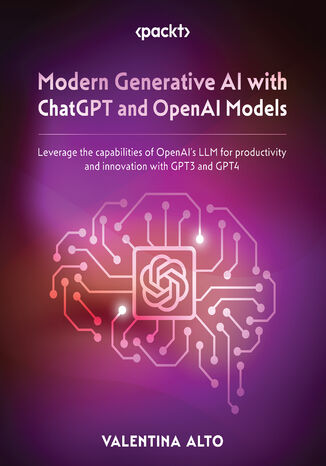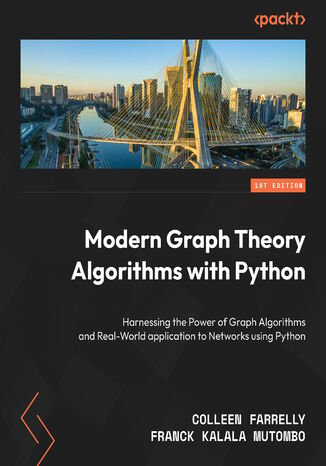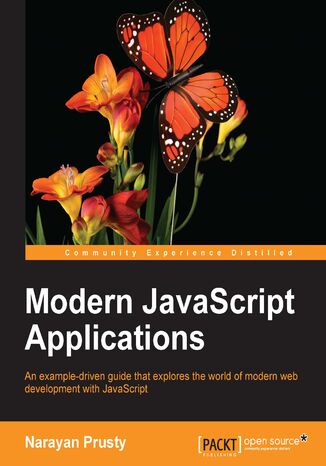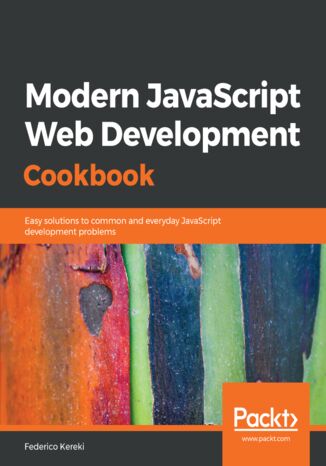Kategorien
-
- Bitcoin
- Geschäftsfrau
- Coaching
- Controlling
- E-Business
- Ökonomie
- Finanzen
- Börse und Investitionen
- Persönliche Kompetenzen
- Computer im Büro
- Kommunikation und Verhandlungen
- Kleines Unternehmen
- Marketing
- Motivation
- Multimedia-Training
- Immobilien
- Überzeugung und NLP
- Steuern
- Sozialpolitik
- Handbȕcher
- Präsentationen
- Führung
- Public Relation
- Berichte, Analysen
- Geheimnis
- Social Media
- Verkauf
- Start-up
- Ihre Karriere
- Management
- Projektmanagement
- Personal (HR)
-
- Architektura i wnętrza
- Sicherheit und Gesundheit am Arbeitsplatz
- Biznes i Ekonomia
- Haus und Garten
- E-Business
- Ekonomia i finanse
- Esoterik
- Finanzen
- Persönliche Finanzen
- Unternehmen
- Fotografie
- Informatik
- HR und Gehaltsabrechnung
- Frauen
- Computer, Excel
- Buchhaltung
- Kultur und Literatur
- Wissenschaftlich und akademisch
- Umweltschutz
- meinungsbildend
- Bildung
- Steuern
- Reisen
- Psychologie
- Religion
- Landwirtschaft
- Buch- und Pressemarkt
- Transport und Spedition
- Gesundheit und Schönheit
-
- Office-Programme
- Datenbank
- Bioinformatik
- IT Branche
- CAD/CAM
- Digital Lifestyle
- DTP
- Elektronik
- Digitale Fotografie
- Computergrafik
- Spiele
- Hacking
- Hardware
- IT w ekonomii
- Wissenschaftliche Pakete
- Schulbücher
- Computergrundlagen
- Programmierung
- Mobile-Programmierung
- Internet-Server
- Computernetzwerke
- Start-up
- Betriebssysteme
- Künstliche Inteligenz
- Technik für Kinder
- Webmaster
-
- Anthologien
- Ballade
- Biografien und Autobiografien
- Für Erwachsene
- Drama
- Tagebücher, Memoiren, Briefe
- Epos
- Essay
- Science Fiction
- Felietonys
- Fiktion
- Humor, Satire
- Andere
- Klassisch
- Krimi
- Sachbücher
- Belletristik
- Mity i legendy
- Nobelpreisträger
- Kurzgeschichten
- Gesellschaftlich
- Okultyzm i magia
- Erzählung
- Erinnerungen
- Reisen
- Gedicht
- Poesie
- Politik
- Populärwissenschaftlich
- Roman
- Historischer Roman
- Prosa
- Abenteuer
- Journalismus
- Reportage
- Romans i literatura obyczajowa
- Sensation
- Thriller, Horror
- Interviews und Erinnerungen
-
- Archäologie
- Bibliotekoznawstwo
- Filmwissenschaft
- Philologie
- Polnische Philologie
- Philosophie
- Finanse i bankowość
- Erdkunde
- Wirtschaft
- Handel. Weltwirtschaft
- Geschichte und Archäologie
- Kunst- und Architekturgeschichte
- Kulturwissenschaft
- Linguistik
- Literaturwissenschaft
- Logistik
- Mathematik
- Medizin
- Geisteswissenschaften
- Pädagogik
- Lehrmittel
- Populärwissenschaftlich
- Andere
- Psychologie
- Soziologie
- Theatrologie
- Teologie
- Theorien und Wirtschaftswissenschaften
- Transport i spedycja
- Sportunterricht
- Zarządzanie i marketing
-
- Sicherheit und Gesundheit am Arbeitsplatz
- Geschichte
- Verkehrsregeln. Führerschein
- Rechtswissenschaften
- Gesundheitswesen
- Allgemeines. Wissenskompendium
- akademische Bücher
- Andere
- Bau- und Wohnungsrecht
- Zivilrecht
- Finanzrecht
- Wirtschaftsrecht
- Wirtschafts- und Handelsrecht
- Strafrecht
- Strafrecht. Kriminelle Taten. Kriminologie
- Internationales Recht
- Internationales und ausländisches Recht
- Gesundheitsschutzgesetz
- Bildungsrecht
- Steuerrecht
- Arbeits- und Sozialversicherungsrecht
- Öffentliches, Verfassungs- und Verwaltungsrecht
- Familien- und Vormundschaftsrecht
- Agrarrecht
- Sozialrecht, Arbeitsrecht
- EU-Recht
- Industrie
- Agrar- und Umweltschutz
- Wörterbücher und Enzyklopädien
- Öffentliche Auftragsvergabe
- Management
-
- Afrika
- Alben
- Südamerika
- Mittel- und Nordamerika
- Australien, Neuseeland, Ozeanien
- Österreich
- Asien
- Balkan
- Naher Osten
- Bulgarien
- China
- Kroatien
- Tschechische Republik
- Dänemark
- Ägypten
- Estland
- Europa
- Frankreich
- Berge
- Griechenland
- Spanien
- Niederlande
- Island
- Litauen
- Lettland
- Mapy, Plany miast, Atlasy
- Miniführer
- Deutschland
- Norwegen
- Aktive Reisen
- Polen
- Portugal
- Andere
- Przewodniki po hotelach i restauracjach
- Russland
- Rumänien
- Slowakei
- Slowenien
- Schweiz
- Schweden
- Welt
- Türkei
- Ukraine
- Ungarn
- Großbritannien
- Italien
-
- Lebensphilosophien
- Kompetencje psychospołeczne
- zwischenmenschliche Kommunikation
- Mindfulness
- Allgemeines
- Überzeugung und NLP
- Akademische Psychologie
- Psychologie von Seele und Geist
- Arbeitspsychologie
- Relacje i związki
- Elternschafts- und Kinderpsychologie
- Problemlösung
- Intellektuelle Entwicklung
- Geheimnis
- Sexualität
- Verführung
- Aussehen ind Image
- Lebensphilosophien
-
- Bitcoin
- Geschäftsfrau
- Coaching
- Controlling
- E-Business
- Ökonomie
- Finanzen
- Börse und Investitionen
- Persönliche Kompetenzen
- Kommunikation und Verhandlungen
- Kleines Unternehmen
- Marketing
- Motivation
- Immobilien
- Überzeugung und NLP
- Steuern
- Sozialpolitik
- Handbȕcher
- Präsentationen
- Führung
- Public Relation
- Geheimnis
- Social Media
- Verkauf
- Start-up
- Ihre Karriere
- Management
- Projektmanagement
- Personal (HR)
-
- Anthologien
- Ballade
- Biografien und Autobiografien
- Für Erwachsene
- Drama
- Tagebücher, Memoiren, Briefe
- Epos
- Essay
- Science Fiction
- Felietonys
- Fiktion
- Humor, Satire
- Andere
- Klassisch
- Krimi
- Sachbücher
- Belletristik
- Mity i legendy
- Nobelpreisträger
- Kurzgeschichten
- Gesellschaftlich
- Okultyzm i magia
- Erzählung
- Erinnerungen
- Reisen
- Poesie
- Politik
- Populärwissenschaftlich
- Roman
- Historischer Roman
- Prosa
- Abenteuer
- Journalismus
- Reportage
- Romans i literatura obyczajowa
- Sensation
- Thriller, Horror
- Interviews und Erinnerungen
-
- Archäologie
- Philosophie
- Wirtschaft
- Handel. Weltwirtschaft
- Geschichte und Archäologie
- Kunst- und Architekturgeschichte
- Kulturwissenschaft
- Literaturwissenschaft
- Mathematik
- Medizin
- Geisteswissenschaften
- Pädagogik
- Lehrmittel
- Populärwissenschaftlich
- Andere
- Psychologie
- Soziologie
- Teologie
- Zarządzanie i marketing
-
- Lebensphilosophien
- zwischenmenschliche Kommunikation
- Mindfulness
- Allgemeines
- Überzeugung und NLP
- Akademische Psychologie
- Psychologie von Seele und Geist
- Arbeitspsychologie
- Relacje i związki
- Elternschafts- und Kinderpsychologie
- Problemlösung
- Intellektuelle Entwicklung
- Geheimnis
- Sexualität
- Verführung
- Aussehen ind Image
- Lebensphilosophien
Richard Grimes, Marius Bancila
C++ is one of the most widely used programming languages. It is fast, flexible, and used to solve many programming problems.This Learning Path gives you an in-depth and hands-on experience of working with C++, using the latest recipes and understanding most recent developments. You will explore C++ programming constructs by learning about language structures, functions, and classes, which will help you identify the execution flow through code. You will also understand the importance of the C++ standard library as well as memory allocation for writing better and faster programs.Modern C++: Efficient and Scalable Application Development deals with the challenges faced with advanced C++ programming. You will work through advanced topics such as multithreading, networking, concurrency, lambda expressions, and many more recipes.By the end of this Learning Path, you will have all the skills to become a master C++ programmer.This Learning Path includes content from the following Packt products:• Beginning C++ Programming by Richard Grimes• Modern C++ Programming Cookbook by Marius Bancila• The Modern C++ Challenge by Marius Bancila
C++ has come a long way to be one of the most widely used general-purpose languages that is fast, efficient, and high-performance at its core.The updated second edition of Modern C++ Programming Cookbook addresses the latest features of C++20, such as modules, concepts, coroutines, and the many additions to the standard library, including ranges and text formatting. The book is organized in the form of practical recipes covering a wide range of problems faced by modern developers.The book also delves into the details of all the core concepts in modern C++ programming, such as functions and classes, iterators and algorithms, streams and the file system, threading and concurrency, smart pointers and move semantics, and many others. It goes into the performance aspects of programming in depth, teaching developers how to write fast and lean code with the help of best practices.Furthermore, the book explores useful patterns and delves into the implementation of many idioms, including pimpl, named parameter, and attorney-client, teaching techniques such as avoiding repetition with the factory pattern. There is also a chapter dedicated to unit testing, where you are introduced to three of the most widely used libraries for C++: Boost.Test, Google Test, and Catch2.By the end of the book, you will be able to effectively leverage the features and techniques of C++11/14/17/20 programming to enhance the performance, scalability, and efficiency of your applications.
The updated third edition of Modern C++ Programming Cookbook addresses the latest features of C++23, such as the stacktrace library, std::expected and std::mdspan classes, the header, formatting library improvements, and updates to the ranges library. It also gets into more C++20 topics not previously covered, such as sync streams and source_location.The book is organized into practical recipes covering a wide range of real-world problems, helping you find the solutions you need quickly. You’ll find coverage of all the core concepts of modern C++ programming and features and techniques from C++11 through to C++23, meaning you’ll stay ahead of the curve by learning to incorporate the newest language and library improvements.Beyond the core concepts and new features, you’ll explore recipes related to performance and best practices, how to implement useful patterns and idioms, like pimpl, named parameter, attorney-client, and the factory pattern, and how to complete unit testing with the widely used C++ libraries: Boost.Test, Google Test, and Catch2.With the comprehensive coverage this C++ programming guide offers, by the end of the book you’ll have everything you need to build performant, scalable, and efficient applications in C++.
C++ is one of the most widely used programming languages. Fast, efficient, and flexible, it is used to solve many problems. The latest versions of C++ have seen programmers change the way they code, giving up on the old-fashioned C-style programming and adopting modern C++ instead.Beginning with the modern language features, each recipe addresses a specific problem, with a discussion that explains the solution and offers insight into how it works. You will learn major concepts about the core programming language as well as common tasks faced while building a wide variety of software. You will learn about concepts such as concurrency, performance, meta-programming, lambda expressions, regular expressions, testing, and many more in the form of recipes. These recipes will ensure you can make your applications robust and fast.By the end of the book, you will understand the newer aspects of C++11/14/17 and will be able to overcome tasks that are time-consuming or would break your stride while developing.
Modern CMake for C++. Discover a better approach to building, testing, and packaging your software
Creating top-notch software is an extremely difficult undertaking. Developers researching the subject have difficulty determining which advice is up to date and which approaches have already been replaced by easier, better practices. At the same time, most online resources offer limited explanation, while also lacking the proper context and structure.This book offers a simpler, more comprehensive, experience as it treats the subject of building C++ solutions holistically. Modern CMake for C++ is an end-to-end guide to the automatization of complex tasks, including building, testing, and packaging. You'll not only learn how to use the CMake language in CMake projects, but also discover what makes them maintainable, elegant, and clean. The book also focuses on the structure of source directories, building targets, and packages. As you progress, you’ll learn how to compile and link executables and libraries, how those processes work, and how to optimize builds in CMake for the best results. You'll understand how to use external dependencies in your project – third-party libraries, testing frameworks, program analysis tools, and documentation generators. Finally, you'll get to grips with exporting, installing, and packaging for internal and external purposes.By the end of this book, you’ll be able to use CMake confidently on a professional level.
Rafał Świdziński, Alexander Kushnir
Modern CMake for C++ isn't just another reference book, or a repackaging of the documentation, but a blueprint to bridging the gap between learning C++ and being able to use it in a professional setting. It's an end-to-end guide to the automation of complex tasks, including building, testing, and packaging software.This second edition is significantly rewritten, restructured and refreshed with latest additions to CMake, such as support of C++20 Modules.In this book, you'll not only learn how to use the CMake language in CMake projects but also discover how to make those projects maintainable, elegant, and clean. As you progress, you'll dive into the structure of source directories, building targets, and packages, all while learning how to compile and link executables and libraries. You'll also gain a deeper understanding of how those processes work and how to optimize builds in CMake for the best results. You'll discover how to use external dependencies in your project – third-party libraries, testing frameworks, program analysis tools, and documentation generators. Finally, you'll gain profi ciency in exporting, installing, and packaging for internal and external purposes.By the end of this book, you'll be able to use CMake confi dently at a professional level.
Are you a software developer, systems designer, or computer architecture student looking for a methodical introduction to digital device architectures but overwhelmed by their complexity? This book will help you to learn how modern computer systems work, from the lowest level of transistor switching to the macro view of collaborating multiprocessor servers. You'll gain unique insights into the internal behavior of processors that execute the code developed in high-level languages and enable you to design more efficient and scalable software systems.The book will teach you the fundamentals of computer systems including transistors, logic gates, sequential logic, and instruction operations. You will learn details of modern processor architectures and instruction sets including x86, x64, ARM, and RISC-V. You will see how to implement a RISC-V processor in a low-cost FPGA board and how to write a quantum computing program and run it on an actual quantum computer. By the end of this book, you will have a thorough understanding of modern processor and computer architectures and the future directions these architectures are likely to take.
Are you a software developer, systems designer, or computer architecture student looking for a methodical introduction to digital device architectures, but are overwhelmed by the complexity of modern systems? This step-by-step guide will teach you how modern computer systems work with the help of practical examples and exercises. You’ll gain insights into the internal behavior of processors down to the circuit level and will understand how the hardware executes code developed in high-level languages.This book will teach you the fundamentals of computer systems including transistors, logic gates, sequential logic, and instruction pipelines. You will learn details of modern processor architectures and instruction sets including x86, x64, ARM, and RISC-V. You will see how to implement a RISC-V processor in a low-cost FPGA board and write a quantum computing program and run it on an actual quantum computer.This edition has been updated to cover the architecture and design principles underlying the important domains of cybersecurity, blockchain and bitcoin mining, and self-driving vehicles.By the end of this book, you will have a thorough understanding of modern processors and computer architecture and the future directions these technologies are likely to take.
V Kishore Ayyadevara, Yeshwanth Reddy
Whether you are a beginner or are looking to progress in your computer vision career, this book guides you through the fundamentals of neural networks (NNs) and PyTorch and how to implement state-of-the-art architectures for real-world tasks.The second edition of Modern Computer Vision with PyTorch is fully updated to explain and provide practical examples of the latest multimodal models, CLIP, and Stable Diffusion.You’ll discover best practices for working with images, tweaking hyperparameters, and moving models into production. As you progress, you'll implement various use cases for facial keypoint recognition, multi-object detection, segmentation, and human pose detection. This book provides a solid foundation in image generation as you explore different GAN architectures. You’ll leverage transformer-based architectures like ViT, TrOCR, BLIP2, and LayoutLM to perform various real-world tasks and build a diffusion model from scratch. Additionally, you’ll utilize foundation models' capabilities to perform zero-shot object detection and image segmentation. Finally, you’ll learn best practices for deploying a model to production.By the end of this deep learning book, you'll confidently leverage modern NN architectures to solve real-world computer vision problems.
V Kishore Ayyadevara, Yeshwanth Reddy
Deep learning is the driving force behind many recent advances in various computer vision (CV) applications. This book takes a hands-on approach to help you to solve over 50 CV problems using PyTorch1.x on real-world datasets.You’ll start by building a neural network (NN) from scratch using NumPy and PyTorch and discover best practices for tweaking its hyperparameters. You’ll then perform image classification using convolutional neural networks and transfer learning and understand how they work. As you progress, you’ll implement multiple use cases of 2D and 3D multi-object detection, segmentation, human-pose-estimation by learning about the R-CNN family, SSD, YOLO, U-Net architectures, and the Detectron2 platform. The book will also guide you in performing facial expression swapping, generating new faces, and manipulating facial expressions as you explore autoencoders and modern generative adversarial networks. You’ll learn how to combine CV with NLP techniques, such as LSTM and transformer, and RL techniques, such as Deep Q-learning, to implement OCR, image captioning, object detection, and a self-driving car agent. Finally, you'll move your NN model to production on the AWS Cloud.By the end of this book, you’ll be able to leverage modern NN architectures to solve over 50 real-world CV problems confidently.
In today's world, it is important to have confidence in your data storage and transmission strategy. Cryptography can provide you with this confidentiality, integrity, authentication, and non-repudiation. But are you aware of just what exactly is involved in using cryptographic techniques? Modern Cryptography for Cybersecurity Professionals helps you to gain a better understanding of the cryptographic elements necessary to secure your data.The book begins by helping you to understand why we need to secure data and how encryption can provide protection, whether it be in motion or at rest. You'll then delve into symmetric and asymmetric encryption and discover how a hash is used. As you advance, you'll see how the public key infrastructure (PKI) and certificates build trust between parties, so that we can confidently encrypt and exchange data. Finally, you'll explore the practical applications of cryptographic techniques, including passwords, email, and blockchain technology, along with securely transmitting data using a virtual private network (VPN).By the end of this cryptography book, you'll have gained a solid understanding of cryptographic techniques and terms, learned how symmetric and asymmetric encryption and hashed are used, and recognized the importance of key management and the PKI.
Modern Data Architecture on AWS. A Practical Guide for Building Next-Gen Data Platforms on AWS
Many IT leaders and professionals are adept at extracting data from a particular type of database and deriving value from it. However, designing and implementing an enterprise-wide holistic data platform with purpose-built data services, all seamlessly working in tandem with the least amount of manual intervention, still poses a challenge.This book will help you explore end-to-end solutions to common data, analytics, and AI/ML use cases by leveraging AWS services. The chapters systematically take you through all the building blocks of a modern data platform, including data lakes, data warehouses, data ingestion patterns, data consumption patterns, data governance, and AI/ML patterns. Using real-world use cases, each chapter highlights the features and functionalities of numerous AWS services to enable you to create a scalable, flexible, performant, and cost-effective modern data platform.By the end of this book, you’ll be equipped with all the necessary architectural patterns and be able to apply this knowledge to efficiently build a modern data platform for your organization using AWS services.
Modern Data Architectures with Python will teach you how to seamlessly incorporate your machine learning and data science work streams into your open data platforms. You’ll learn how to take your data and create open lakehouses that work with any technology using tried-and-true techniques, including the medallion architecture and Delta Lake.Starting with the fundamentals, this book will help you build pipelines on Databricks, an open data platform, using SQL and Python. You’ll gain an understanding of notebooks and applications written in Python using standard software engineering tools such as git, pre-commit, Jenkins, and Github. Next, you’ll delve into streaming and batch-based data processing using Apache Spark and Confluent Kafka. As you advance, you’ll learn how to deploy your resources using infrastructure as code and how to automate your workflows and code development. Since any data platform's ability to handle and work with AI and ML is a vital component, you’ll also explore the basics of ML and how to work with modern MLOps tooling. Finally, you’ll get hands-on experience with Apache Spark, one of the key data technologies in today’s market.By the end of this book, you’ll have amassed a wealth of practical and theoretical knowledge to build, manage, orchestrate, and architect your data ecosystems.
Containers have entirely changed how developers and end-users see applications as a whole. With this book, you'll learn all about containers, their architecture and benefits, and how to implement them within your development lifecycle.You'll discover how you can transition from the traditional world of virtual machines and adopt modern ways of using DevOps to ship a package of software continuously. Starting with a quick refresher on the core concepts of containers, you'll move on to study the architectural concepts to implement modern ways of application development. You'll cover topics around Docker, Kubernetes, Ansible, Terraform, Packer, and other similar tools that will help you to build a base. As you advance, the book covers the core elements of cloud integration (AWS ECS, GKE, and other CaaS services), continuous integration, and continuous delivery (GitHub actions, Jenkins, and Spinnaker) to help you understand the essence of container management and delivery. The later sections of the book will take you through container pipeline security and GitOps (Flux CD and Terraform).By the end of this DevOps book, you'll have learned best practices for automating your development lifecycle and making the most of containers, infrastructure automation, and CaaS, and be ready to develop applications using modern tools and techniques.
DevOps and the cloud have changed how we look at software development and operations like never before, leading to the rapid growth of various DevOps tools, techniques, and practices. This updated edition helps you pick up the right tools by providing you with everything you need to get started with your DevOps journey.The book begins by introducing you to modern cloud-native architecture, and then teaches you about the architectural concepts needed to implement the modern way of application development. The next set of chapters helps you get familiarized with Git, Docker, Kubernetes, Ansible, Terraform, Packer, and other similar tools to enable you to build a base. As you advance, you’ll explore the core elements of cloud integration—AWS ECS, GKE, and other CaaS services. The chapters also discuss GitOps, continuous integration, and continuous delivery—GitHub actions, Jenkins, and Argo CD—to help you understand the essence of modern app delivery. Later, you’ll operate your container app in production using a service mesh and apply AI in DevOps. Throughout the book, you’ll discover best practices for automating and managing your development lifecycle, infrastructure, containers, and more.By the end of this DevOps book, you'll be well-equipped to develop and operate applications using modern tools and techniques.
Liudmila Molkova, Sergey Kanzhelev
As distributed systems become more complex and dynamic, their observability needs to grow to aid the development of holistic solutions for performance or usage analysis and debugging. Distributed tracing brings structure, correlation, causation, and consistency to your telemetry, thus allowing you to answer arbitrary questions about your system and creating a foundation for observability vendors to build visualizations and analytics.Modern Distributed Tracing in .NET is your comprehensive guide to observability that focuses on tracing and performance analysis using a combination of telemetry signals and diagnostic tools. You'll begin by learning how to instrument your apps automatically as well as manually in a vendor-neutral way. Next, you’ll explore how to produce useful traces and metrics for typical cloud patterns and get insights into your system and investigate functional, configurational, and performance issues. The book is filled with instrumentation examples that help you grasp how to enrich auto-generated telemetry or produce your own to get the level of detail your system needs, along with controlling your costs with sampling, aggregation, and verbosity.By the end of this book, you'll be ready to adopt and leverage tracing and other observability signals and tools and tailor them to your needs as your system evolves.
Almost a decade after the release of Node.js, the tooling used by frontend developers is fully embracing this cross-platform JavaScript runtime, which is sadly often limited to server-side web development. This is where this Node.js book comes in, showing you what this popular runtime has to offer and how you can unlock its full potential to create frontend-focused web apps.You’ll begin by learning the basics and internals of Node.js, before discovering how to divide your code into modules and packages. Next, you’ll get to grips with the most popular package managers and their uses and find out how to use TypeScript and other JavaScript variants with Node.js. Knowing which tool to use when is crucial, so this book helps you understand all the available state-of-the-art tools in Node.js. You’ll interact with linters such as ESLint and formatters such as Prettier. As you advance, you’ll become well-versed with the Swiss Army Knife for frontend developers – the bundler. You’ll also explore various testing utilities, such as Jest, for code quality verification. Finally, you’ll be able to publish your code in reusable packages with ease.By the end of this web development book, you’ll have gained the knowledge to confidently choose the right code structure for your repositories with all that you’ve learned about monorepos.
Understanding full-stack development is vital as companies aim to bridge the gap between frontend and backend development. Recent trends show deeper integration between the two, opening numerous possibilities for building real-world web applications, through server-side technologies like Node.js, Express, and MongoDB. Written by the author of Learning Redux and Learn React Hooks, and CEO of TouchLay, Modern Full-Stack React Projects will guide you through the entire process of advancing from a frontend developer to a full-stack developer. Starting with how to set up robust projects that can be maintained for a long time, you’ll then progress toward developing a backend system and integrating it with the frontend. Throughout the book, you’ll learn how to build, test, and deploy a blog application and a chat application. You’ll also explore MongoDB, Express, React, Node.js (MERN) stack, best practices for frontend and backend development, different full-stack architectures, unit and end-to-end testing, and deployment of full-stack web applications. Once you get to grips with the essential concepts, you’ll progress to learn how to use Next.js, an enterprise-grade full-stack web framework for React. By the end, you’ll be well-versed in the MERN stack and all set to create performant and scalable full-stack web applications.
In the ASP.NET Core ecosystem, choosing the right JavaScript framework is key to addressing diverse project requirements. Witten by a four-time Microsoft MVP with 16 years of software development experience, this book is your comprehensive guide to mastering full-stack development, combining ASP.NET Core’s robust backend capabilities with the dynamic frontend power of Vue.js, Angular, and React.This book uses ASP.NET Core to teach you best practices for integrating modern JavaScript frameworks, and creating responsive, high-performance applications that deliver seamless client–server interactions and scalable RESTful APIs. In addition to building expertise in ASP.NET Core’s core strengths, such as API security, architecture principles, and performance optimization, the chapters will help you develop the essential frontend skills needed for full-stack development. Sections on Blazor take a C#-based approach to creating interactive UIs, showcasing ASP.NET Core’s flexibility in handling both server and client-side needs.By the end of this book, you will have a complete toolkit for designing, deploying, and maintaining complex full-stack applications, along with practical knowledge of both backend and frontend development.
Few things are more annoying for gamers than encountering a buggy new game. This often leads to negative reviews, and in turn, you’ll find that demand for your games declines. The solution lies in better quality assurance (QA) – and Modern Game Testing will show you how to achieve just that. Whether you’re a new tester, developer or producer, the QA testing techniques shown in this book, using modern methodologies and the latest technology, will have you releasing quality games that are on time and, most importantly, on budget.The book begins by introducing you to QA and the various types of tests that are performed on games. You’ll then explore test cases and bug reporting, building tests for different platforms (even consoles and PCs), and LiveOps and test management. As you advance, you’ll build a QA team from scratch and work with remote QA testers. The chapters help you take a more traditional approach to learning lessons, enabling you to examine the modern agile approach and various testing strategies that you can then adopt. All angles are covered with oodles of examples, so you’ll have everything you need to implement QA strategies in your organization.By the end of this book, you’ll have a clear understanding of the modern methodologies of QA testing for games, and be able to build efficient, reliable, and long-lasting QA teams.
Generative AI models and AI language models are becoming increasingly popular due to their unparalleled capabilities. This book will provide you with insights into the inner workings of the LLMs and guide you through creating your own language models. You’ll start with an introduction to the field of generative AI, helping you understand how these models are trained to generate new data.Next, you’ll explore use cases where ChatGPT can boost productivity and enhance creativity. You’ll learn how to get the best from your ChatGPT interactions by improving your prompt design and leveraging zero, one, and few-shots learning capabilities. The use cases are divided into clusters of marketers, researchers, and developers, which will help you apply what you learn in this book to your own challenges faster.You’ll also discover enterprise-level scenarios that leverage OpenAI models’ APIs available on Azure infrastructure; both generative models like GPT-3 and embedding models like Ada. For each scenario, you’ll find an end-to-end implementation with Python, using Streamlit as the frontend and the LangChain SDK to facilitate models' integration into your applications.By the end of this book, you’ll be well equipped to use the generative AI field and start using ChatGPT and OpenAI models’ APIs in your own projects.
Colleen M. Farrelly, Franck Kalala Mutombo, Michael Giske
We are living in the age of big data, and scalable solutions are a necessity. Network science leverages the power of graph theory and flexible data structures to analyze big data at scale.This book guides you through the basics of network science, showing you how to wrangle different types of data (such as spatial and time series data) into network structures. You’ll be introduced to core tools from network science to analyze real-world case studies in Python. As you progress, you’ll find out how to predict fake news spread, track pricing patterns in local markets, forecast stock market crashes, and stop an epidemic spread. Later, you’ll learn about advanced techniques in network science, such as creating and querying graph databases, classifying datasets with graph neural networks (GNNs), and mining educational pathways for insights into student success. Case studies in the book will provide you with end-to-end examples of implementing what you learn in each chapter.By the end of this book, you’ll be well-equipped to wrangle your own datasets into network science problems and scale solutions with Python.
Modern JavaScript Applications. Keep abreast of the practical uses of modern JavaScript
Over the years, JavaScript has become vital to the development of a wide range of applications with different architectures. But JS moves lightning fast, and it’s easy to fall behind. Modern JavaScript Applications is designed to get you exploring the latest features of JavaScript and how they can be applied to develop high-quality applications with different architectures. Begin by creating a single page application that builds on the innovative MVC approach using AngularJS, then move forward to develop an enterprise-level application with the microservices architecture using Node to build web services. After that, shift your focus to network programming concepts as you build a real-time web application with websockets. Learn to build responsive, declarative UIs with React and Bootstrap, and see how the performance of web applications can be enhanced using Functional Reactive Programming (FRP). Along the way, explore how the power of JavaScript can be increased multi-fold with high performance techniques. By the end of the book, you’ll be a skilled JavaScript developer with a solid knowledge of the latest JavaScript techniques, tools, and architecture to build modern web apps.
JavaScript has evolved into a language that you can use on any platform. Modern JavaScript Web Development Cookbook is a perfect blend of solutions for traditional JavaScript development and modern areas that developers have lately been exploring with JavaScript. This comprehensive guide teaches you how to work with JavaScript on servers, browsers, mobile phones and desktops.You will start by exploring the new features of ES8. You will then move on to learning the use of ES8 on servers (with Node.js), with the objective of producing services and microservices and dealing with authentication and CORS. Once you get accustomed to ES8, you will learn to apply it to browsers using frameworks, such as React and Redux, which interact through Ajax with services. You will then understand the use of a modern framework to develop the UI. In addition to this, development for mobile devices with React Native will walk you through the benefits of creating native apps, both for Android and iOS.Finally, you’ll be able to apply your new-found knowledge of server-side and client-side tools to develop applications with Electron.

